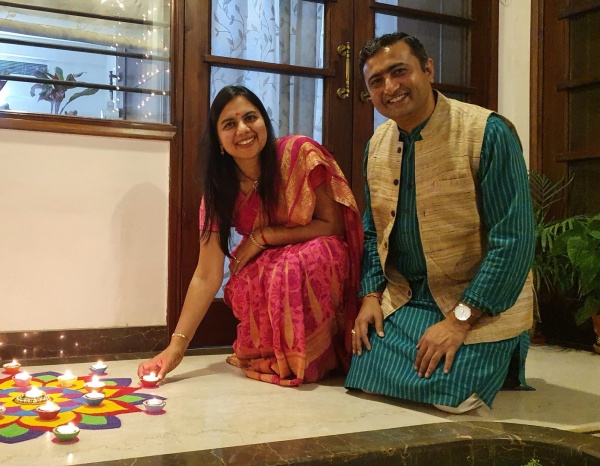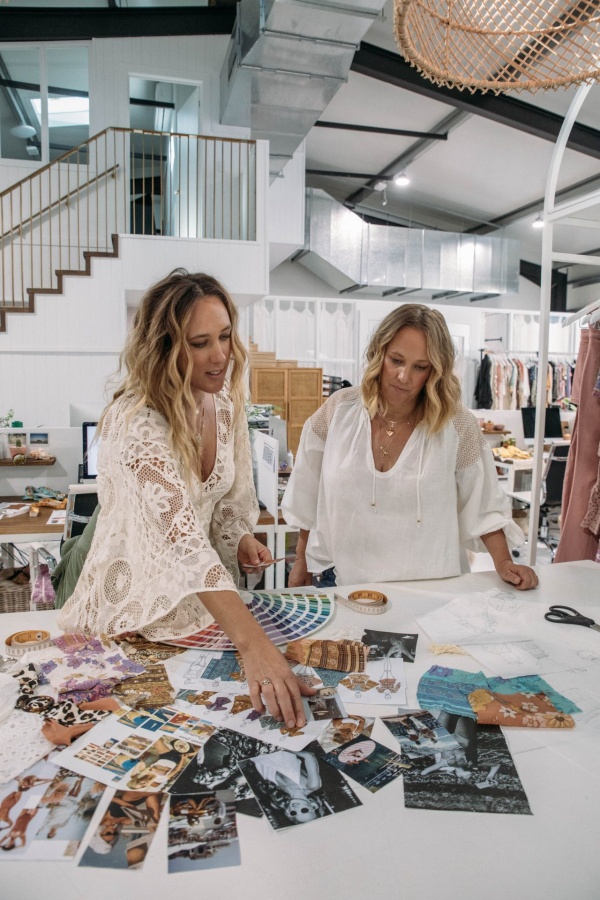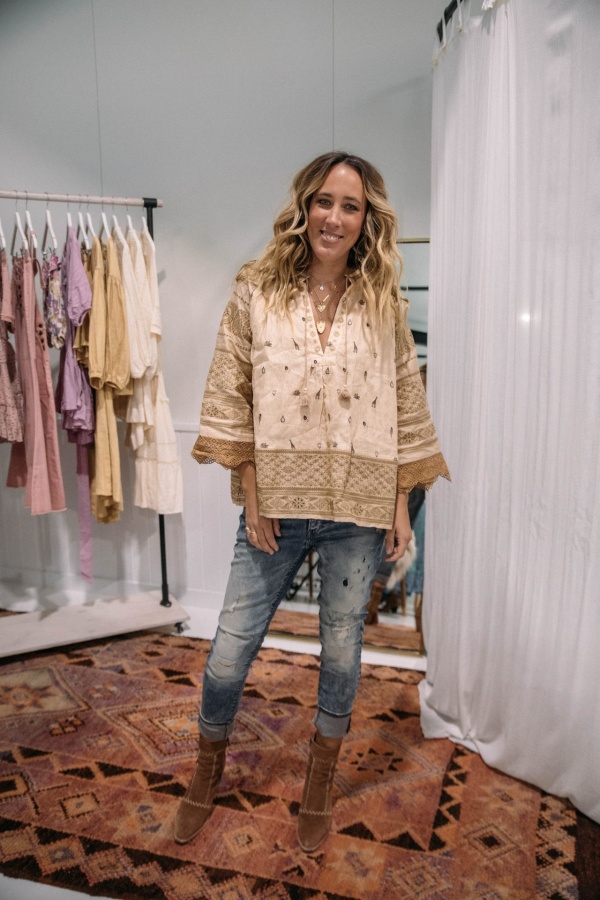
Spell's Six Degrees collection was made using the SETU Bridge to Artisan program
- Culture
An exclusive conversation with Spell’s artisans
Spell’s Isabella Pennefather dives deep on Fair Trade
We began Spell with a love of handcrafting. I used to make our jewellery by hand – each and every piece – and back when we were teens, my sister (and now business partner, Elizabeth) and I used to hand make bags and jewellery out of leather and beads we found in our mum’s sewing room and vintage stores. In my 20’s I began creating jewellery for a hobby, which eventually turned into a business. This love of hand craft was the essence of Spell and the core of our roots, so when it came to circling back to creating jewellery collections for Spell, the art of hand craft and artisan techniques was close to our hearts.
This is my conversation with Devendra Dhariwal from SETU: The Bridge To Artisans
Isabella:
When we found SETU we were so thrilled to find an artisan group who shares that love of hand crafting and has passed it down to other generations. How do the artisans get trained?
Devendra:
Most artisans don’t have any formal education and are usually illiterate. For crafts, they usually learn traditional techniques from their forefathers. We also organise and sponsor skill development workshops where mastercraftsmen within the community are hired for training the young aspiring artisans. For silver jewellery, many illiterate youth from poorer states, such as West Bengal, migrate to other cities like Jaipur, in search of livelihood. Here, other mastercraftsmen of their community train them in various processes of jewellery making, thus gearing them up to earn a dignified livelihood.
Isabella:
Creating a program like this must have been a huge process and something that came from your hearts. Tell me about the creation of the Bridge to Artisans program?
Devendra:
We (myself and my wife, Rashmi) have been successful engineers by profession and during our work we came in contact with an artisan community who had expertise in hand weaving of fine fabrics. The lack of access to market and the technology-driven competition were taking their toll on the artisans and the art was dying, along with their spirits. We left our jobs and spent some time with the community, helping them design modern products and identify ways to reach the market. We developed a model of sustainable development through ethical trade practices and a powerful solution to the social and economic development of the marginalized and underprivileged communities. We also founded our non-profit arm with the aim of serving the underprivileged and work for social, economic and environmental sustainability projects.
With Fair Trade, everyone can make a difference in the world, however small it may be.

Devendra Dhariwal from SETU: The Bridge To Artisans with wife, Rashmi
Isabella:
Tell us about the meaning behind the word SETU
Devendra:
‘SETU’ in Sanskrit means ‘The bridge’. SETU-The Bridge to Artisans’ acts as a bridge between the underprivileged and marginalized artisans and the international affluent markets, at the same time, working for social, economic and environmental well-being of the artisan communities.
Isabella:
We have found the link between brands and artisans is hard to connect and nurture if you aren’t physically over there yourselves in the initial stages. Why is the link between Artisans and brands so important?
Devendra:
Artisans benefit a lot when they get associated with brands. Brands have a good knowledge of trends and market requirements and pass this on to artisans. Brands also help in providing larger volumes which help provide a sustainable livelihood. Working with Spell has helped us to expand our product range, learn new techniques and market trends.
Isabella:
The process of the partnerships must differ from group to group, how does this relationship begin?
Devendra:
Artisan groups approach us in search of work. We evaluate them for their practices, update them with SETU policies and ethics, identify their skill potential, upgrade their skills, guide them with new techniques, do capacity building and so on. In due course, mutual trust and harmony builds. We also are able to identify any issues, address their needs and implement development programs where needed.

Spell’s Isabella Pennefather and Lizzy Abeg
Isabella:
Why is Fair Trade so important?
Devendra:
Fair Trade is a powerful tool for socio-economic development. It’s a market-based approach to ending poverty and promoting sustainability through ethical practices. It ensures dignified living because it is “Trade, not aid”. Fair Trade is more than just trading. It proves that greater justice in world trade is possible. It helps ensure all three pillars of sustainability: social, economic and environmental.

Isabella Pennefather
RELATED: Emma Lewisham on Earth-friendly beauty
